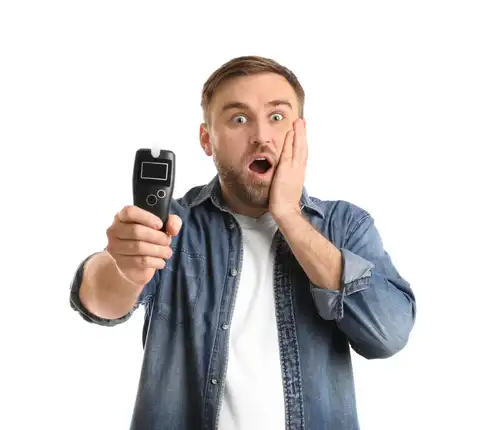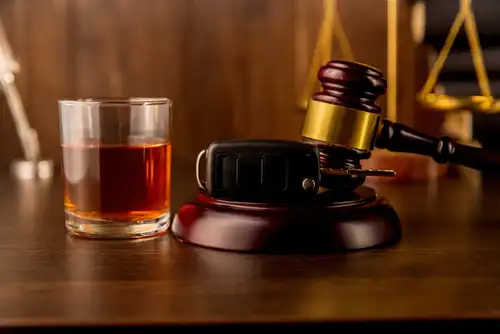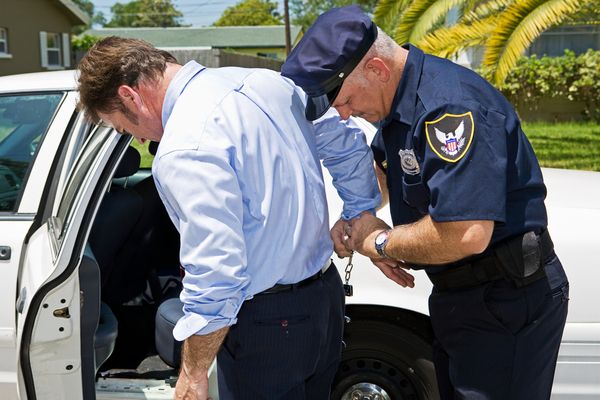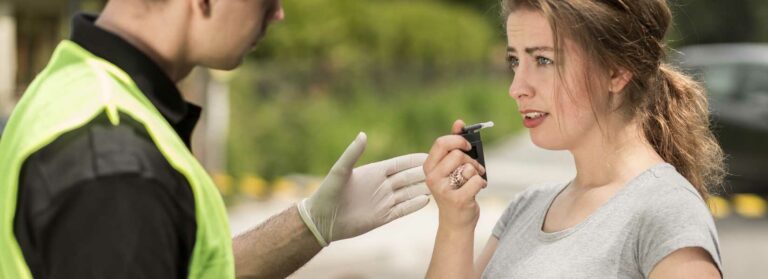Understanding DUI Breath Test Defense: How a DUI Breath Test Defense Lawyer in Indianapolis Can Fight Your Case
Facing a DUI charge based on a breathalyzer test can be overwhelming, but hiring an experienced criminal defense lawyer who can challenge breathalyzer consent can make a significant difference in the outcome of your case. A skilled DUI breath test defense lawyer in Indianapolis can employ multiple defense strategies to challenge the validity of breath test results and protect your rights. Understanding the common issues with breath tests and the legal defenses available can make a significant difference in the outcome of your case.
Understanding Indiana DUI Laws
Navigating the complexities of Indiana DUI breathalyzer test laws can be daunting, but understanding these laws is crucial for anyone facing DUI charges. Indiana’s DUI laws are detailed in specific state statutes, including Indiana Code 9-30-5, 9-30-6, and 9-30-7. These codes outline what constitutes a DUI offense, the penalties involved, and the legal processes that follow a DUI breath test arrest.
Indiana Code 9-30-5 – Operating a Vehicle While Intoxicated
Indiana Code 9-30-5 defines the offense of operating a vehicle while intoxicated and sets forth the penalties for such actions. Key points include:
- Serious Offense: Operating a vehicle while intoxicated is considered a serious offense in Indiana, with significant legal repercussions.
- Penalties: The penalties for a DUI in Indiana can be severe, ranging from fines, job displacement, and license suspension to imprisonment. The severity of the penalties often depends on the specifics of the case, such as the driver’s BAC level and any prior DUI convictions.
- BAC Thresholds: A blood alcohol concentration (BAC) of 0.08% or higher is the standard threshold for intoxication. However, a BAC of 0.15% or higher can result in even more severe penalties, reflecting the increased danger posed by higher levels of intoxication.
Indiana Code 9-30-6 – Operating a Vehicle with Controlled Substance
Indiana Code 9-30-6 addresses DUI charges involving controlled substances other than alcohol. This code is crucial for understanding how DUI laws apply to drug-related offenses. Key points include:
- Controlled Substances: DUI charges can be based on the presence of controlled substances in the driver’s system, not just alcohol. This includes illegal drugs as well as certain prescription medications.
- Chemical Tests: A chemical test that detects metabolites or controlled substances can support a DUI charge, even in the absence of a high BAC reading. This means that drivers can face DUI charges based on drug impairment alone.
- Prescription Medications: It’s important to note that even legally prescribed medications can lead to DUI charges if they impair the driver’s ability to operate a vehicle safely.
Indiana Code 9-30-7 – Operating a Vehicle While Intoxicated Endangering a Person
Indiana Code 9-30-7 imposes felony charges for DUI offenses that endanger another person. This code highlights the increased legal penalties for such actions. Key points include:
- Felony Offense: Endangering a person while driving under the influence is classified as a felony in Indiana, reflecting the serious nature of this offense.
- Severe Penalties: The penalties for endangering a person while driving under the influence can be severe, including substantial fines, extended license suspension, and imprisonment. These enhanced penalties underscore the heightened risk and potential harm associated with such actions.
How DUI Breath Tests Work
A breathalyzer measures Blood Alcohol Content (BAC) by analyzing a person’s breath. Law enforcement officers use these devices to determine whether a driver is above the legal limit. In Indiana, the legal BAC limit is 0.08% for most drivers and 0.02% for those under 21. Additionally, implied consent laws require drivers to submit to chemical testing, meaning refusal can lead to automatic license suspension.
In addition to breath tests, law enforcement officers may also conduct a field sobriety test to assess a driver’s level of impairment.
Breath tests rely on technology that assumes consistency in bodily functions and external factors. However, human metabolism, residual mouth alcohol, and even the way the test is administered can affect the results. Police officers must follow strict protocols to ensure accuracy, but deviations from these procedures are common and can lead to unreliable results.
The DUI Arrest Process in Indianapolis
Understanding what happens after a DUI arrest in Indianapolis can help you navigate the legal system more effectively. The process typically involves several steps, starting with the traffic stop and field sobriety tests.
Traffic Stop and Field Sobriety Tests
When a law enforcement officer suspects a driver of being impaired, they will initiate a traffic stop. During the stop, the officer may ask the driver to step out of the vehicle and perform field sobriety tests. Key points include:
- Traffic Stop: The initial traffic stop is a critical moment in the DUI arrest process. The officer will observe the driver’s behavior and look for signs of impairment, such as erratic driving, slurred speech, or the smell of alcohol.
- Field Sobriety Tests: These tests are conducted on the roadside and are designed to assess the driver’s physical and cognitive abilities. Common tests include the walk-and-turn, one-leg stand, and horizontal gaze nystagmus. However, these tests are not always accurate and can be influenced by various factors, such as weather conditions, terrain, and lighting.
- Right to Refuse: Drivers have the right to refuse field sobriety tests. In many cases, it may be in the driver’s best interest to do so, as these tests can be subjective and prone to error.
It’s essential to remember that you have the right to remain silent and refuse to answer any questions during the DUI arrest process. Anything you say can be used against you, so it’s crucial to exercise your right to remain silent and seek the advice of an experienced DUI attorney. An experienced DUI attorney can help you understand your rights and options, ensuring that you receive the best possible defense.
Common Issues with Breathalyzer and Field Sobriety Tests
Despite their widespread use, breathalyzers are not foolproof. Several factors can lead to inaccurate readings, making it possible to challenge test results in court. A tailored defense strategy can effectively challenge the accuracy of breathalyzer test results in court.
Device Malfunctions & Calibration Errors
Breathalyzers require regular maintenance and calibration to function correctly. If these devices are not properly maintained, they can produce incorrect readings. A lawyer can request maintenance records to identify any inconsistencies or previous malfunctions that could affect the validity of the test results in DUI cases.
Human Error by Law Enforcement
The accuracy of a breath test also depends on proper administration by law enforcement officers. If an officer fails to observe a driver for the required waiting period before administering the test, fails to use the device correctly, or does not follow procedural guidelines, the results may be challenged in court. An experienced criminal defense attorney can identify procedural errors that may render breath test results inadmissible in court.
Medical Conditions & External Factors
Certain medical conditions can lead to false positive results on a breathalyzer test. Conditions such as GERD (gastroesophageal reflux disease), diabetes, or acid reflux can cause elevated BAC readings. Additionally, alcohol-based mouthwash, medications, or even certain diets can result in inaccurately high readings.
Rising Blood Alcohol Concentration Defense
Alcohol absorption in the body does not occur instantly. A person’s BAC may rise over time, meaning that their BAC level at the time of testing could be higher than it was while driving. This defense argues that a driver was below the legal limit when operating their vehicle but had a higher BAC when the test was administered.
How an Indianapolis DUI Lawyer Can Challenge Breath Test Evidence
A skilled Indianapolis DUI attorney can use various strategies to challenge breathalyzer evidence and help reduce or dismiss charges.
Requesting Maintenance & Calibration Records
Lawyers can request the breathalyzer’s maintenance logs to check if the device was properly maintained and calibrated. If inconsistencies are found, the reliability of the test results can be called into question.
Challenging Law Enforcement Procedures
If an officer did not follow proper procedures, such as failing to observe the driver before the test or improperly administering it, the results may be ruled inadmissible in court.
Understanding Indiana’s DUI laws is essential for identifying procedural errors that can invalidate breath test results.
Using Expert Witness Testimony
A forensic toxicologist or breathalyzer test expert can be called upon to explain how DUI breath test results may be flawed or inaccurately interpreted. Expert testimony can help demonstrate that a breathalyzer’s readings were unreliable, which is crucial in DUI cases.
Filing Motions to Suppress Evidence
If a breath test was conducted improperly or under questionable circumstances, a lawyer can file a motion to suppress the evidence. If successful, this could lead to the breathalyzer results being excluded from the case, significantly weakening the prosecution’s argument.
Contact our office for a free consultation to discuss how we can challenge the breathalyzer evidence in your case.
Real-Life Case Examples of DUI Charges
In many cases, charges in DUI cases can get reduced or dismissed due to breathalyzer test inaccuracies. For example:
- A driver with GERD successfully argued that their medical condition led to a false high BAC reading, resulting in the dismissal of their DUI charge.
- A case was thrown out after maintenance logs revealed that the breathalyzer had not been calibrated for months before the defendant’s test.
- A driver’s charge was reduced when their lawyer proved that the rising BAC defense applied, showing that their BAC was within the legal limit while driving.
These examples highlight why hiring the best DUI defense attorney in Indianapolis is essential for fighting breath test-based DUI charges. These examples highlight the importance of a tailored defense strategy in achieving favorable outcomes in DUI cases.
Why You Should Seek Legal Help From Rathburn Law Office P.C., P.C.
Breathalyzers are not foolproof, and Rathburn Law Office P.C., P.C. knows there are multiple ways to challenge their accuracy in a DUI case. From calibration errors to improper administration, the attorneys at Rathburn Law Office P.C., P.C. can uncover key flaws that could weaken the prosecution’s case.
If you’ve been charged with a DUI based on a breathalyzer test, don’t assume you’re out of options. Contact Rathburn Law Office P.C., P.C. today for a consultation, and let our experienced DUI breath test defense lawyer in Indianapolis fight for your rights 800-800-8000.









